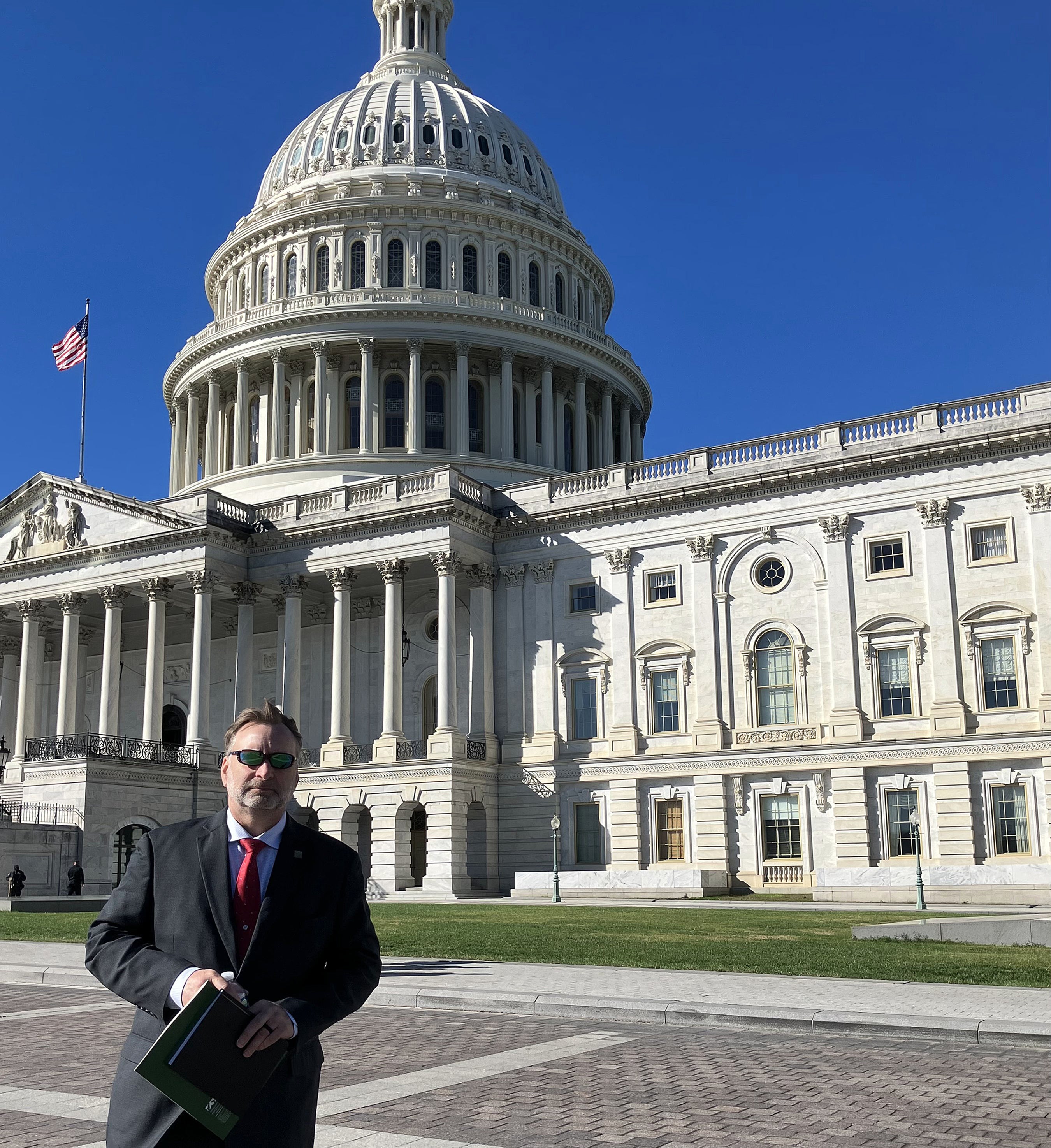By DAVID RAINER, Alabama Department of Conservation and Natural Resources
According to Ron Regan, Executive Director of the Association of Fish and Wildlife Agencies (AFWA), it may not make the headlines in the newspapers but the election of Chuck Sykes as AFWA’s president is a big deal.
Sykes, Director of Wildlife and Freshwater Fisheries (WFF) with the Alabama Department of Conservation and Natural Resources (ADCNR), started serving his one-year term in September and has already been on a whirlwind tour to seven states, the District of Columbia and Canada in his official duties as president.
“It’s a huge honor for Chuck,” Regan said. “The association doesn’t elect someone unless they have proved their worth in their work with the association. It does, in fact, mean that Chuck has or could have access to the director of U.S. Fish and Wildlife Service or national wildlife organizations. Those are extremely important. We do rely on our president to be our principal spokesperson on issues. So, it’s not just about approving policy. We can bring Chuck to D.C. to testify or meet with a committee or be at some event to mingle with somebody important in Congress, who, in turn, is important to the state fish and wildlife agencies.”
With offices in D.C., AFWA was formed in 1902 to represent fish and wildlife agencies in all U.S. states and territories as well as Canadian provinces.
“AFWA basically exists to make sure the rights and privileges and jurisdictional responsibilities of state fish and wildlife agencies are upheld and no harm is done through federal legislation, rulemaking or policy,” Regan said. “When possible, we advocate for funding and other authority to help states do their work better. It’s interesting to note that the provinces and territories of Canada are also members of the association. That’s why we had our annual meeting in Calgary, Canada, just a couple of months ago when Chuck became president.
“Our mission is basically to look out for the states. We’re all about making sure the states have the resources to do their jobs and they don’t get compromised by some new federal program that takes away Chuck’s authority to manage species within the borders of Alabama.”
ADCNR Commissioner Chris Blankenship is pleased Sykes has this opportunity to share his substantial knowledge and experience with the rest of the U.S. and Canada.
“I’m happy for Chuck and his potential impacts around the country,” said Commissioner Blankenship. “He has brought a good common-sense approach to managing wildlife in Alabama and has done some progressive things here. I’m excited he has the opportunity to take that to other parts of the country and help them make the same strides we’ve made here in Alabama.”
Although AFWA operates with 26 employees and a $5 million budget, Regan said the D.C. offices are not “command central.”
“We rely on our leaders, like our president, to make decisions, guide directions and set tone,” he said. “There is virtually nothing that is major or substantive when it comes to a national issue like chronic wasting disease (CWD) or avian influenza or endangered species that we don’t run through our president. So, he has a very significant role to play in shaping the tone, tenor and content on what we say on any national issue. Of course, he helps establish priorities.”
Regan said many who love the outdoors will benefit from Sykes’ role as AFWA president.
“To your typical sportsperson in Alabama, they may say ‘Huh,’” he said. “To that I would say, fish and wildlife conservation is based on partnerships, on science of course, and it crosses borders and jurisdictions. Through Chuck’s leadership, he’s looking for good science, improving partnerships and making sure no harm is done to what states do best when it comes to managing fish and wildlife.
“There are benefits that are not insignificant to making sure every quail hunter, deer hunter or bass fisherman continues to have the resources that are important to them, their families and their futures. I think at the end of the day Chuck’s work brings value in a tangible way to the future of conservation in Alabama and the other states and provinces.”








